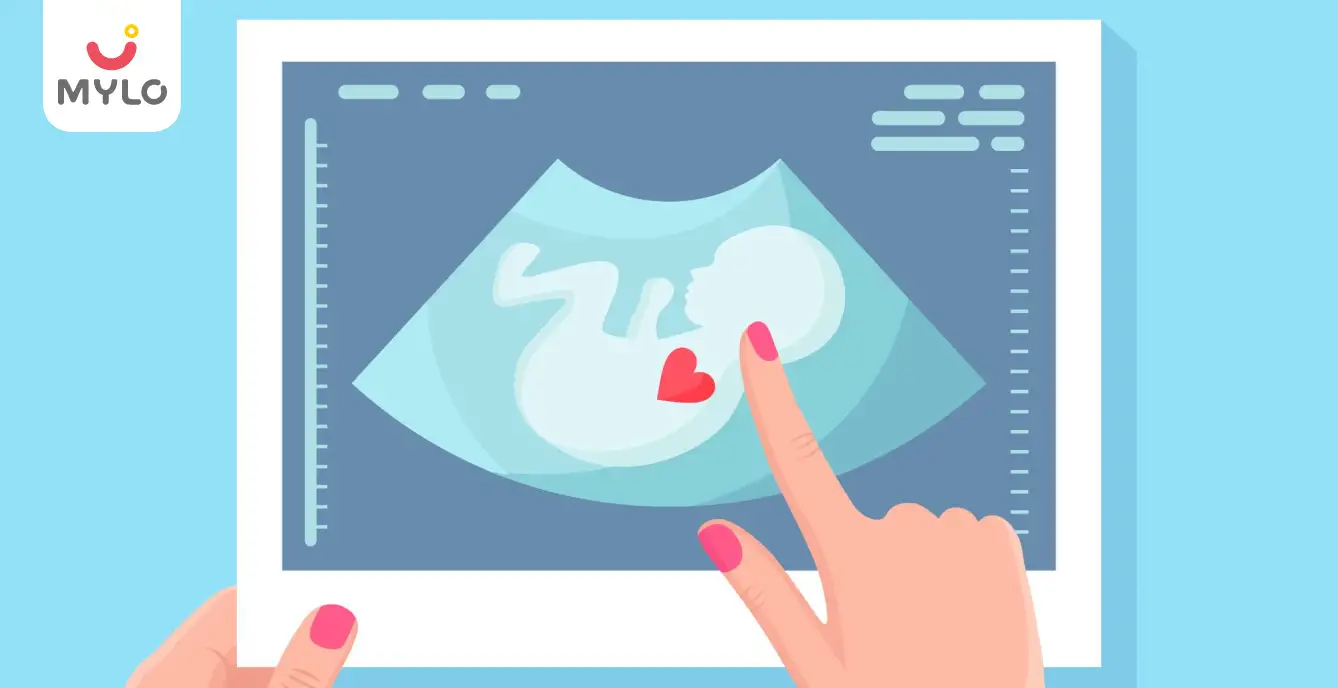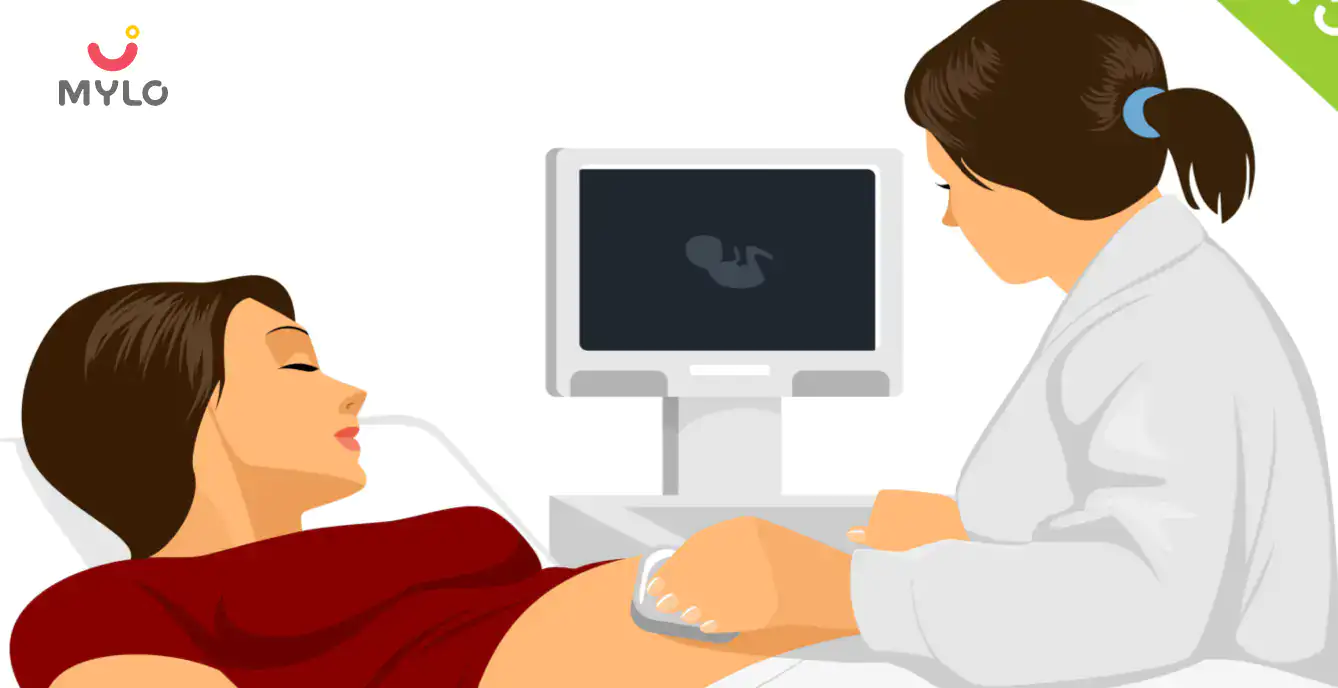Home

Labour & Delivery

Lightning Crotch in Pregnancy: All You Need to Know
In this Article

Labour & Delivery
Lightning Crotch in Pregnancy: All You Need to Know
Updated on 28 April 2023
As an expecting mother, you may have experienced some unexpected and uncomfortable symptoms throughout your pregnancy. One of the most common and frequently reported symptoms is the lightning crotch.
This article will explore what lightning crotch is, what causes it, and how to manage it. But before we dive in, we want to hear from you! Have you experienced lightning crotch during your pregnancy? If so, how did you manage it? If not, are you curious about this common pregnancy symptom? Let us know in the comments below, and let's get started!
What is a lightning crotch?
Lightning crotch is a term used to describe a sudden, sharp, shooting pain in the pelvic area during pregnancy. The pain can be felt anywhere from the vulva to the upper thighs and can occur without warning. It is called a "lightning" crotch because the pain is often described as a sudden bolt or jolt, similar to a lightning strike. The pain can be intense and may only last for a few seconds, but it can be very uncomfortable and alarming for pregnant women.
Causes of lightning crotch
The exact causes of lightning crotch during pregnancy are not fully understood, but several possible factors may contribute to this uncomfortable sensation:
-
Baby's movements: As your baby grows and moves, it can put pressure on nerves in the pelvic area, which can cause sudden pain or discomfort.
-
Braxton Hicks contractions: These are "practice" contractions that can occur throughout pregnancy. They may cause sudden, sharp pain in the pelvic area, which can feel like a lightning crotch.
-
Pelvic floor changes: As the baby grows, the pelvic floor muscles stretch and may become weaker, leading to increased sensitivity and pain in the pelvic area.
-
Increased blood flow: During pregnancy, there is increased blood flow to the pelvic area, which can cause sensitivity and discomfort.
-
Hormonal changes: The hormonal changes during pregnancy can affect the nerves and muscles in the pelvic area, leading to discomfort and pain.
Non-pregnancy related causes
Some non-pregnancy-related causes of lightning crotch include:
-
Urinary tract infection: A urinary tract infection can cause pain and discomfort in the pelvic area, which may feel similar to a lightning crotch.
-
Nerve damage or irritation: Nerve damage or irritation in the pelvic area can cause sharp, shooting pain.
-
Interstitial cystitis: This chronic bladder condition can cause pelvic pain, discomfort, and frequent urination.
Home remedies for lightning crotch during pregnancy
Several home remedies may help to alleviate the discomfort associated with lightning crotch during pregnancy:
-
Change position: Try changing your position frequently throughout the day. Avoid sitting or standing in the same position for extended periods. Taking frequent breaks to walk or stretch can also help.
-
Warm baths: Soaking in a warm bath may help relax the pelvic area muscles and reduce discomfort.
-
Pelvic floor exercises: Doing pelvic floor exercises, also known as Kegel exercises, can help strengthen the pelvic area muscles and may reduce pain and discomfort.
-
Supportive underwear: Wearing supportive underwear, such as maternity underwear or a support belt, can help remove pressure from the pelvic area.
Is a lightning crotch a labor sign?
A lightning crotch can be a sign of labor, but it does not always indicate that labor is imminent. As the baby's head moves lower into the pelvis in preparation for birth, it can pressure nerves and cause a lightning crotch. This can occur in the weeks leading up to or during early labor.
When to visit the doctor
You should contact your healthcare provider if you experience any of the following:
-
Severe or persistent pain: It is essential to seek medical attention if the pain is severe or does not go away.
-
Bleeding: If you experience any vaginal bleeding, it is essential to contact your healthcare provider immediately.
-
Contractions: If you experience regular contractions, it may be a sign of preterm labor, and you should contact your healthcare provider immediately.
-
Water breaking: If your water breaks, you should contact your healthcare provider immediately.
What distinguishes lightning crotch during pregnancy from other types of pelvic pain?
Some of the key characteristics that distinguish lightning crotch from other types of pelvic pain during pregnancy include:
-
Sudden onset: Lightning crotch pain occurs suddenly, often without warning, and lasts only a few seconds.
-
Shooting pain: The pain associated with lightning crotch is often described as shooting or electric-like.
-
Location: Lightning crotch pain is typically felt in the vagina, pubic bone, or rectum and may be felt on one or both sides.
-
Expected in late pregnancy: Lightning crotch is most commonly experienced in the later stages of pregnancy, as the baby's head moves lower into the pelvis.
FAQs
At what stage of pregnancy does the lightning crotch start?
Lightning crotch can start at any point during pregnancy, but it is most common in the third trimester. As the baby grows and prepares for birth, the pressure on the pelvic area increases, which can cause discomfort and pain.
How do I know if it's a lightning crotch?
If you are experiencing sudden, sharp pain in your pelvic area during pregnancy, you may be experiencing lightning crotch.
Does the lightning crotch mean the cervix is opening?
No, experiencing lightning crotch during pregnancy does not necessarily mean that your cervix is opening or you are going into labor. Lightning crotch is a common symptom experienced by many pregnant women and is typically caused by the pressure and stretching of the ligaments and muscles in the pelvic area as the baby grows.



Written by
Madhavi Gupta
Dr. Madhavi Gupta is an accomplished Ayurvedic doctor specializing in Medical content writing with an experience of over 10 years.
Read MoreGet baby's diet chart, and growth tips

Related Articles
Related Topics
RECENTLY PUBLISHED ARTICLES
our most recent articles

Vaginal Discharge
Vaginal Dilator: Learn its Types & How To Use It?

Care for Baby
Infected Umbilical Cord: Symptoms, Treatment And Prevention

hair regime
Is Hair Fall Normal in Pregnancy

Illnesses & Infections
Syphilis: Symptoms, Causes, Risks & Treatment

Scans & Tests
Congenital Heart Disease: Symptoms, Causes & Treatment

Scans & Tests
Fetal Echo Test in Pregnancy: A Diagnostic Tool for Detecting Heart Defects in the Womb
- Bedwetting (Nocturnal Enuresis): Causes, Symptoms & Treatment
- Birthmark: Types, Causes, Risks & Treatment
- Behaviour Therapy: Benefits, Types & Techniques
- How Long Does Breast Milk Last at Room Temperature?
- Thrush: Causes, Symptoms, Treatment, and More
- Childhood Asthma: Symptoms, Causes & Treatment
- Reflux in Baby: Symptoms, Causes & Treatment
- Pre Eclampsia: Meaning, Causes & Symptoms
- Baby Diarrhea: Causes, Symptoms & Treatment
- Bronchiolitis: Causes, Symptoms & Treatment
- Pelvic Pain in Pregnancy: Symptoms & Treatment
- Saliva During Pregnancy: Causes & Prevention
- Effective Ways to Treat Jaundice in Children: Expert Tips for a Speedy Recovery
- 10 Best Original Movies to Watch on Netflix


AWARDS AND RECOGNITION

Mylo wins Forbes D2C Disruptor award

Mylo wins The Economic Times Promising Brands 2022
AS SEEN IN
















- Mylo Care: Effective and science-backed personal care and wellness solutions for a joyful you.
- Mylo Baby: Science-backed, gentle and effective personal care & hygiene range for your little one.
- Mylo Community: Trusted and empathetic community of 10mn+ parents and experts.
Product Categories
baby carrier | baby soap | baby wipes | stretch marks cream | baby cream | baby shampoo | baby massage oil | baby hair oil | stretch marks oil | baby body wash | baby powder | baby lotion | diaper rash cream | newborn diapers | teether | baby kajal | baby diapers | cloth diapers |




